Election 2024





By Angélica Escobar
As the race for the California 74th Assembly District intensifies, two candidates from South Orange County are laying out their visions to address the key issues facing their district: current San Clemente City Councilmember Chris Duncan and incumbent Assemblymember Laurie Davies. Duncan, a longtime San Clemente resident and former mayor, is campaigning on improving representation for his district in Sacramento. His priorities include public safety, cost-ofliving concerns, homelessness, and coastal protection, ensuring that local tax dollars are spent on community needs like sand replenishment and bluff stabilization.
Duncan emphasizes public safety, noting that San Clemente relies on the Orange County Sheriff’s Department for police services. He played a pivotal role in hiring Chief of Police Services Jay Christian and supports adding more deputies and code compliance officers to maintain cleanliness in parks and beaches.
“I was proud to be the councilmember and mayor who advocated for adding four more deputy sheriffs, which we successfully implemented. I also played a key role in adding more code compliance officers, specifically park rangers, to keep our parks and beaches clean,” Duncan said.
Addressing homelessness is another of Duncan’s priorities. Instead of accepting temporary state funding for emergency solutions, he chose to hire outreach workers, aiming to build trust with the homeless community and focus on long-term solutions, such as supportive housing with mental health services.
“We want to address the long-term causes of homelessness, and that’s what our homeless outreach team was empowered to do, and that’s what they did. And so I’m proud that we were able to make that progress,” Duncan said.
As a board member of the Orange County Fire Authority, Duncan has also advocated for additional resources, including new firefighting helicopters, to ensure adequate attention is given to South Orange County’s wildfire risks.
“I have ensured that San Clemente receives its fair share from the fire service and fought for greater wildland protection. Most recently, I authorized the purchase of two new fire helicopters that deliver water to combat fires,” he said.
Duncan is a vocal advocate for women’s reproductive rights, standing against efforts to limit such services in San Clemente.
“I proudly stood with residents from all walks of life to fight back against a previous attempt by some extreme City Councilmembers to outlaw women’s reproductive services and Planned Parenthood in our community. It’s vital to ensure that no extremist resolution that undermines women’s rights ever gets on our agenda again,” he said.
In contrast, Duncan accuses his opponent, Laurie Davies, of supporting a nationwide abortion ban. “Laurie Davies supported a nationwide abortion ban, even in cases of rape and incest, which contradicts community values of freedom and choice,” Duncan said.
Davies, first elected to the Laguna Niguel City Council in 2012 and later serving as its mayor, is focusing her campaign on keeping prices affordable and neighborhoods safe. Elected to the California State Assembly in 2020 and reelected in 2022, she has called for significant tax reforms, including the removal of the gas tax, an issue she says resonates with many residents.
“I think No. 1, we want to make sure that we can go ahead and get rid of the gas tax. ... I had voted on that six times on the floor, and unfortunately, they voted to the super majority to not even have it voted on,” Davies said.
Davies advocates for providing tax credits to renters, particularly seniors on fixed incomes, and insists that such measures can be implemented without negatively affecting the state budget.
“I really believe that we need to provide a tax credit to renters, especially for our seniors who are on a fixed income. There are common-sense methods we can implement that won’t be detrimental to the rest of the state,” she said.
Davies also stresses the need for accountability in state spending, particularly on homelessness. She co-authored a measure that revealed $25 billion was spent on homelessness without producing clear results. “They came up and said, ‘We understand now that the audit revealed an increase in homelessness, but they were never held accountable,’ “ she said.
Additionally, Davies criticizes Gov. Gavin Newsom for cutting funding for firefighter mitigation efforts and has consistently supported legislation aimed at bolstering law enforcement resources and mental health services for first responders. “We need to ensure our police have the support they need to keep our neighborhoods safe,” Davies said.
When discussing homelessness, Davies highlights compassion and understanding as crucial elements. She emphasizes the importance of training law enforcement and social workers to effectively identify and assist individuals with conditions such as autism or mental illness, fostering a supportive environment that encourages trust.
“I think that the key thing is compassion, compassion and understanding,” she said, describing her support for a homeless task force that works with social workers.
Reflecting on her time serving the 74th Assembly District, Davies expressed deep gratitude for the opportunity to represent her community and underscored her commitment to bipartisanship. She pointed to her A rating on her voting record and encouraged constituents to visit her website for accurate information, refuting claims from her opponent. She also discussed personal challenges, including her absence due to her mother’s illness, while stressing that her legislative achievements—23 bills signed into law, all focused on enhancing safety and reducing the cost of living—speak for themselves.
“My opponent tends to lie or mislead people when it comes to the things that he’s saying about me. So when it comes to my voting record, I have an A voting record, and he knows that I had an excused absence because my mother was dying, and so I needed to leave,” Davies said.
As the election approaches, voters in San Clemente face a significant decision, weighing each candidate’s approach to public safety, housing, and community well-being. Duncan calls for change and a focus on local needs, while Davies emphasizes her experience and commitment to addressing California’s challenges.
The 74th Assembly District includes San Clemente, Dana Point, Laguna Niguel and San Juan Capistrano in South Orange County, down through Camp Pendleton, Oceanside, Vista and part of Fallbook in North San Diego County.


Parents’ Choice
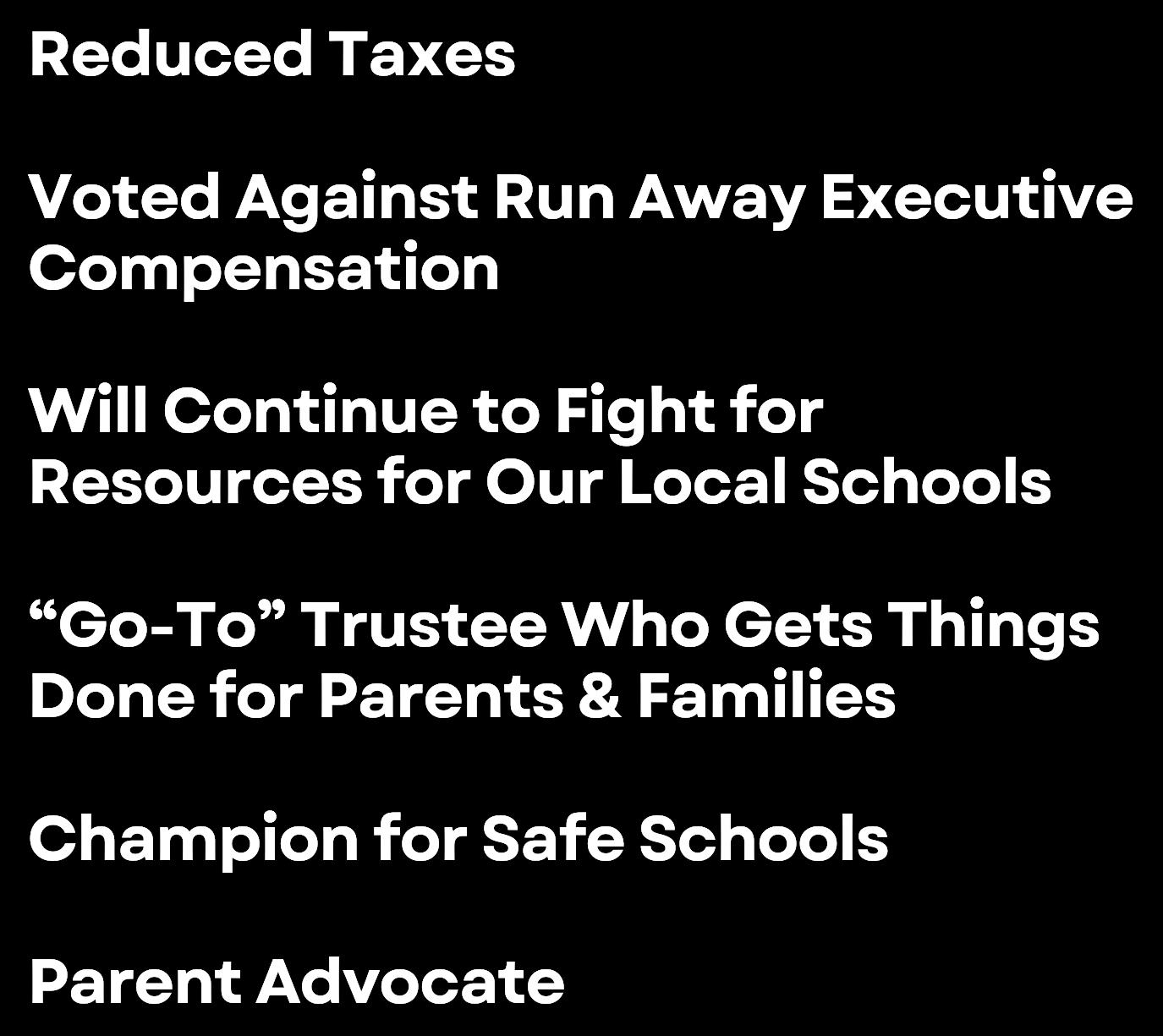
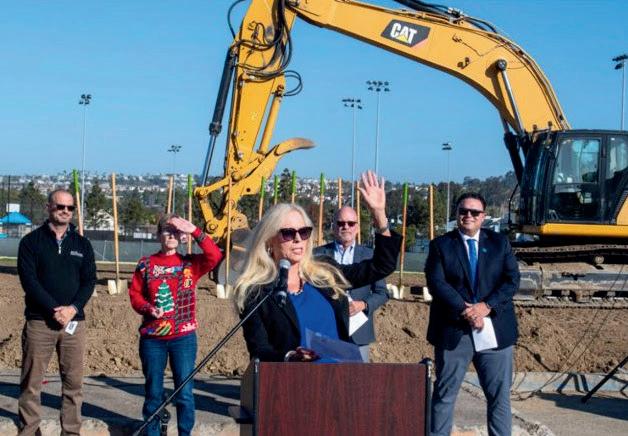


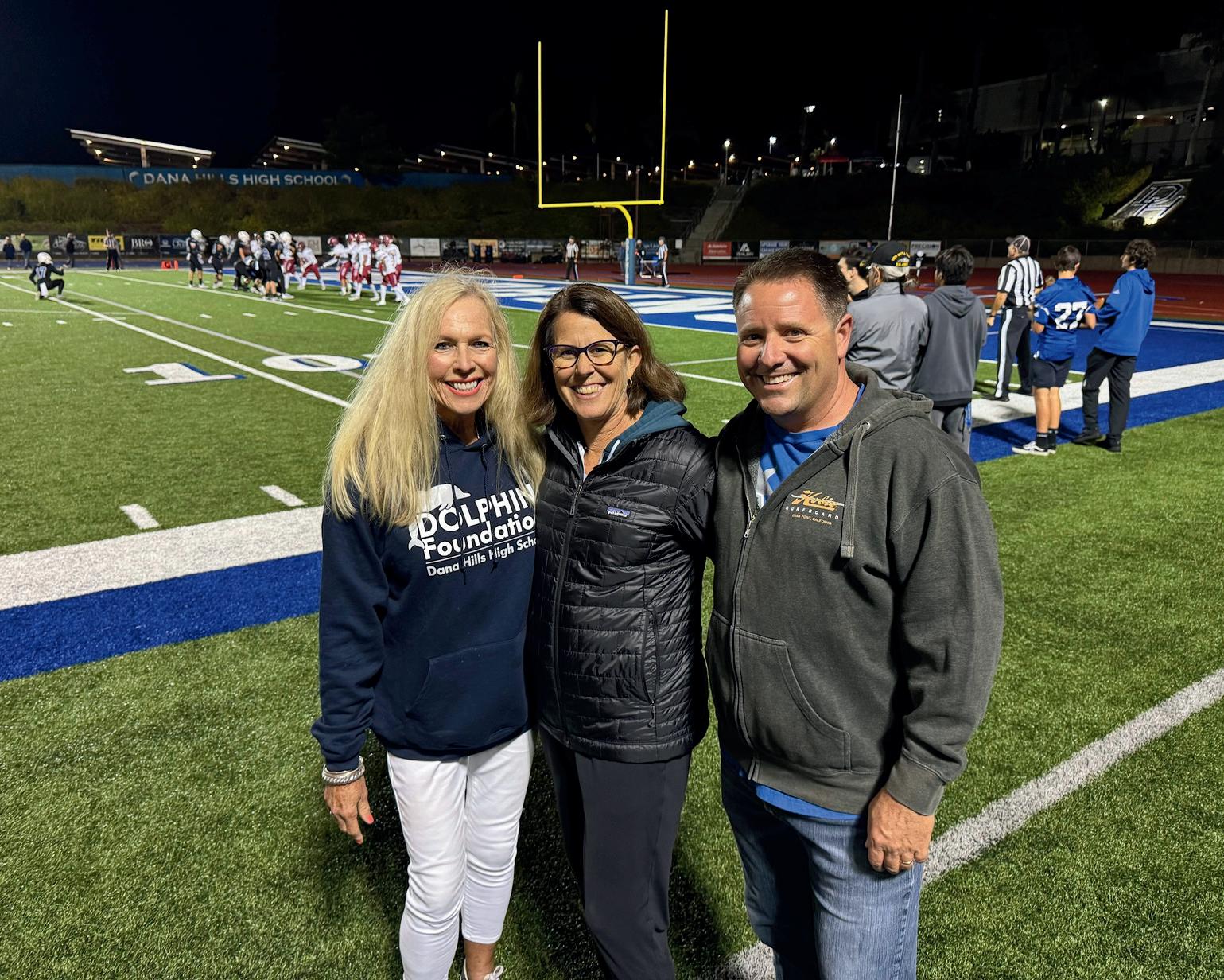
“Amy

Paula
By Angélica Escobar
In the race for California’s 49th Congressional District, Republican Matt Gunderson and Democrat Mike Levin bring distinct backgrounds and priorities to the forefront.
Gunderson is a businessman and resident of Ladera Ranch who has founded three auto dealerships in Mission Viejo, creating over 200 local jobs. He emphasizes strengthening the economy, drawing on his business experience to address wages, inflation, and the rising costs of housing, gas, and groceries. His campaign focuses on key issues, including supporting term limits for Congress members to bring fresh perspectives to Washington.
Gunderson advocates for repealing the gas tax hike, halting the proposed mileage tax, and maintaining Proposition 13 to limit property-tax increases for homeowners. He also prioritizes border security, aiming to address concerns related to drug trafficking, crime, and national security. Furthermore, he supports safeguarding Social Security and Medicare for seniors, improving the Department of Veterans Affairs for veterans, and maintaining access to reproductive health services, including abortion and fertility treatments such as IVF.
Gunderson’s approach to crime includes supporting law enforcement while ensuring accountability. He has proposed a plan to address homelessness by offering treatment for those in need and managing public spaces. Residing in Ladera Ranch for 25 years with his wife and four daughters, Gunderson remains actively engaged in the local community.
Mike Levin, the incumbent Congressman representing California’s 49th Congressional District, brings a different perspective to the race. Raised in South Orange County by a Mexican-American mother and a Jewish-American father, Levin attended local public
schools and graduated from Stanford University, where he served as student body president. He earned his law degree from Duke University.
Before his election to Congress in 2019, his first of three terms in the House of Representatives, Levin served as Executive Director of the Democratic Party of Orange County, supporting political campaigns and community initiatives. He also worked as an attorney specializing in environmental and energy law and co-founded Sustain OC, promoting sustainable practices in the region.
In Congress, Levin collaborates with members from both parties on various issues, including lowering costs for families, fostering innovation and job creation, and ensuring public safety while addressing border security and immigration. He advocates for freedom from gun violence, for women’s rights, and for the protection of health care and veterans’ services.
Levin is also committed to environmental protection, including efforts to remove spent nuclear fuel from San Onofre and strengthen Social Security and Medicare. His focus extends to education, pandemic preparedness, LGBTQ+ equality, and housing and homelessness. He opposes toll road extensions through South Orange County. Levin lives in San Juan Capistrano with his wife, Chrissy, and their two children.
As the election approaches, Gunderson and Levin present contrasting visions for the future of the 49th Congressional District, making this race a pivotal one for local voters.
The 49th District includes North San Diego County and parts of South Orange County, including the cities of Dana Point, San Clemente and San Juan Capistrano.
By Angelica Escobar
With the election season in full swing, California voters will have a unique opportunity to fill a Senate seat by selecting both a short-term and longterm successor to the late Sen. Dianne Feinstein. The candidates on the ballot are Rep. Adam B. Schiff, a Democrat from Burbank, and former Dodgers All-Star Steve Garvey, a Republican from Palm Desert. They will compete in two separate elections: one to complete Feinstein’s term, which ends in early January, and another for a full six-year Senate term.
This election marks the first U.S. Senate race in California without an incumbent since 2016, when Kamala Harris secured the seat previously held by retiring Sen. Barbara Boxer. Harris served four terms and is now running for President.
Following Harris’ swearing-in as Vice President in 2021, Gov. Gavin Newsom appointed Alex Padilla to take her place. Padilla later won a full six-year term in 2022. Regardless of whether Schiff or Garvey wins, California will be without a female senator for the first time in a generation.
Schiff, 64, has represented Los Angeles and the San Gabriel Valley for nearly 30 years. He rose to national prominence during the impeachment trials of former President Trump, particularly through his role on the January 6 committee investigating the alleged conspiracy to overturn the 2020 election. His actions have attracted both praise and criticism, culminating in a censure from House Republicans in 2023, who accused him of misleading Congress regarding alleged collusion between Trump’s 2016 campaign and Russia. Schiff regards the censure as a “badge of honor.”
Garvey, 75, is better recognized for his baseball career than his political endeavors. A standout first baseman for the Dodgers during the 1970s and 1980s, Garvey won a World Series title in 1981 and was a 10-time National League All-Star. Running as a first-time candidate, he presents himself as a “moderate conservative.” Despite a pristine public image, his personal life has been scrutinized due to past controversies and ongoing financial issues, including substantial unpaid debts and back taxes.
By Breeana Greenberg
For the second consecutive election cycle, Dana Point City Council candidates will run unopposed, though a citywide election will still be held on Nov. 5.
Current Councilmembers Mike Frost and Michael Villar are seeking a second term representing Districts 4 and 5, respectively.
In 2022, Councilmembers Jamey Federico (the current mayor), John Gabbard and Matthew Pagano were appointed to the three open seats after all three candidates were set to run unopposed in their respective districts.
However, after a ballot initiative (Measure T) seeking to repeal and replace Dana Point’s short-term rental ordinance qualified for the upcoming election, candidates running unopposed this year will not be appointed.
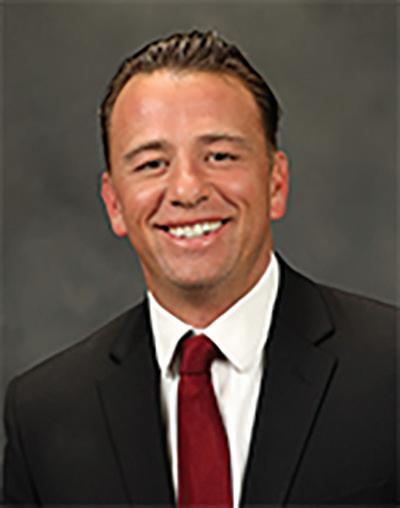
















Dana Point Times
Residents in South Orange County will decide which of two candidates will represent their areas on the Capistrano Unified School District Board of Trustees.
Four seats are up for grabs in Areas 1, 2, 3 and 5 during the Nov. 5 general election.
Voters will decide between these candidates:
Area 1: Amy Hanacek (incumbent) or Jennifer Adnams
Area 2: Michael Parham (incumbent) or Lisa Zollinger
Area 3: Lisa Davis (incumbent) or Sherine Smith
Area 5: Krista Castellanois (incumbent) or Sonia Terwiske

Border


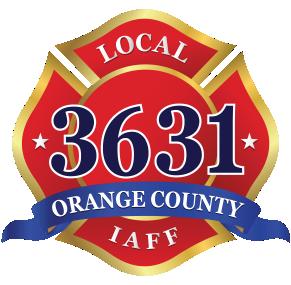

By Kaila Mellos
On the Ballot: Shall “An Initiative to Repeal and Replace the City’s Existing Short-Term Rental Ordinance” be adopted?
Background: Betty and Buck Hill of Dana Point seek to establish a tiered prioritization system that gives homestay vacation rentals the highest priority and nonprimary rentals the lowest priority. The proposed seven-tier prioritization system would give residents priority in receiving vacation rental permits. The prioritization system gives permits to homestay STRs in commercial and mixed-use zones first, followed by primary STRs in commercial and mixed-use zones, then multifamily primary STRs in commercial and mixed-use zones, followed by homestay STRs in residential zones, primary STRs in residential zones and multifamily STRs in residential zones, with non-primary STRs as the lowest priority.
The program would also replace the city’s existing cap of 115 permits inside the coastal zone with a cap equivalent to 1% of the coastal zone’s housing stock and replace the 115-permit cap outside of the coastal zone with a cap equivalent to 0.5% of the housing stock. The cap would be adjusted every three years after evaluating the number of dwelling units in each zone. The program also seeks to eliminate the waiting list and the vacation rental permits currently “grandfathered in” to the current system.
There are 101 “grandfathered-in” STRs, 56 within the coastal zone and 45 outside the coastal zone. The proposed program would require those seeking vacation rental permits to apply by March 1 each year. STR owners can only advertise their rentals once they are awarded a permit number. The initiative would also require platforms such as Airbnb and Vrbo to collect the Transient Occupancy Tax on each vacation rental on behalf of the city.
Supporters: Betty Hill
What Supporters Say: Supporters of this measure say that voting yes on Measure T will ensure that Dana Point residents are put first in housing. The spread of hotel-like STR businesses for investors in residential neighborhoods could cause problems concerning management, violations, safety, parking, noise, trash, and partying. The planned measure, if passed, would help reduce the number of STRs allowed in Dana Point by approximately 50% to help preserve available housing.
Resident homeowners will be awarded STR permits for their primary homes before being awarded to investors to accommodate residents with financial needs and help reduce possible negative impacts on residents and neighborhoods. The program would award permits annually so all property owners can participate in the permitting process and eliminate all “grandfathered-in” STRs that allow continuous renewals favoring investors. This measure would prioritize granting permits in commercial and mixed-use zones before in residential to protect neighborhoods further. This measure would require an STR registry that includes STR addresses, the owners, agents, the TOT paid, and other relevant information, which will keep residents informed about STR activity in their neighborhoods. This measure will also change the policy so that if any changes need to be made by the City Council, an election would need to happen to ensure that voters support the changes.
What Opponents Say: In 2023, the City Council adopted, and the California Coastal Commission approved, a short-term rental ordinance that limits permits and has strict rules to eliminate potential nuisances. One measure of its success is the lack of complaints from neighbors. In the first half of 2024, the city received six complaints about STRs; only two were validated after investigation. Last year, short-term rentals generated $725,000 in transient occupancy tax (TOT) for the city. Properties can be audited anytime to ensure they are paying the tax. If this measure is to be enacted, the replacement ordinance will likely reduce the city’s revenue by at least $450,000 annually.
The replacement ordinance has other negative consequences. The proposed annual permit lottery will create uncertainty for owners and may make them less committed to being good operators. This will likely encourage unpermitted and unregulated operators. One of the strengths of the existing policy is that the City Council can amend it at any time and is required to review it at least every three years with the California Coastal Commission. The City Council analyzes complaint data and can adjust permit limits and regulations to ensure the program meets the changing needs of the community. The existing ordinance already prioritizes properties with the lowest nuisance risk. Most important for voters to understand is that if this ballot measure passes, the new ordinance can never be adjusted without another election. The proposed ordinance states that any changes in the future will require a vote in an election. This appears to mean the city cannot add a rule to tighten noise restrictions or parking restrictions, nor could it reduce the total number of permits.

Picket Fence Media
Starting in 2024, San Clemente will move from citywide, at-large elections to a district-based voting system for City Council representatives. The new system, adopted by the City Council, divides the city into four districts, with each district electing one representative for a four-year term. The mayor will continue to be elected citywide for a two-year term, beginning in 2026.
The transition to district elections in San Clemente begins on Nov. 5, 2024, when voters in Districts 3 and 4 will elect their City Councilmembers. In November 2026, the election will include voters from Districts 1 and 2, along with the mayoral race.
The City of Dana Point adopted a five-district, by-district method of election system and sequence for City Council elections after a vote in May 2018, in time for the November elections that year.
The City of San Juan Capistrano’s “at-large” system for electing City Councilmembers changed to a by-district system in June 2016, in time for the November elections that year.
The change to by-district elections means that on Election Day, voters will vote only for the candidate in the district in which they live.
The change in San Clemente came after the city received a letter in July 2023 challenging its at-large election process, citing the California Voting Rights Act (CVRA). The CVRA prohibits election systems that weaken the influence of minority voters. In response, the City Council passed Resolution No. 23-85 in August 2023, initiating the transition to by-district elections to comply with the CVRA.
While San Clemente voters rejected a similar proposal for by-district elections in 2018, with around 70% voting against it, the city’s decision does not protect it from CVRA-related legal challenges. Under the CVRA, plaintiffs need only demonstrate that at-large elections dilute minority voting power, a lower burden of proof than federal cases.
Faced with the risk of costly litigation, the SC City Council decided to transition to district-based elections within the state’s “safe harbor” period, which limits recoverable ex-
penses to $37,000 if the city voluntarily adopts the change. If the city had not complied, legal battles could have cost up to several million dollars, as seen in other California cities including Palmdale and Santa Monica, which faced multimillion-dollar legal bills after losing similar cases.
The city has finalized the voting districts following public hearings to gather community input on the boundaries. The finalized districts utilize population data from the U.S. Census Bureau, ensuring they are geographically contiguous, compact, and reflective of San Clemente’s communities of interest, including neighborhoods, schools, and shared socio-economic factors.
These community engagement efforts included opportunities for residents to voice their opinions and concerns about the districting process, with hearings held to discuss how the boundaries should be drawn. Public participation is essential in shaping a fair representation that reflects the diversity of San Clemente’s population.
San Clemente’s move to district elections is part of a broader trend in California, where numerous cities have faced similar legal challenges. While the transition involves significant changes for residents and the voting process, it aims to provide more equitable representation for all parts of the city. With district elections, local representatives can better address the unique needs of their communities, potentially leading to more focused governance and enhanced accountability.
As San Clemente prepares for this new electoral landscape, officials emphasize the importance of educating residents about the changes and encouraging participation in the upcoming elections. The City Council is committed to ensuring that the new system fosters community involvement and reflects the voices of all constituents.
With these changes on the horizon, San Clemente stands at a pivotal moment in its electoral history, aiming to enhance democratic processes and representation for all residents. The council urges residents to stay informed and engaged as the city moves forward into this new chapter.
